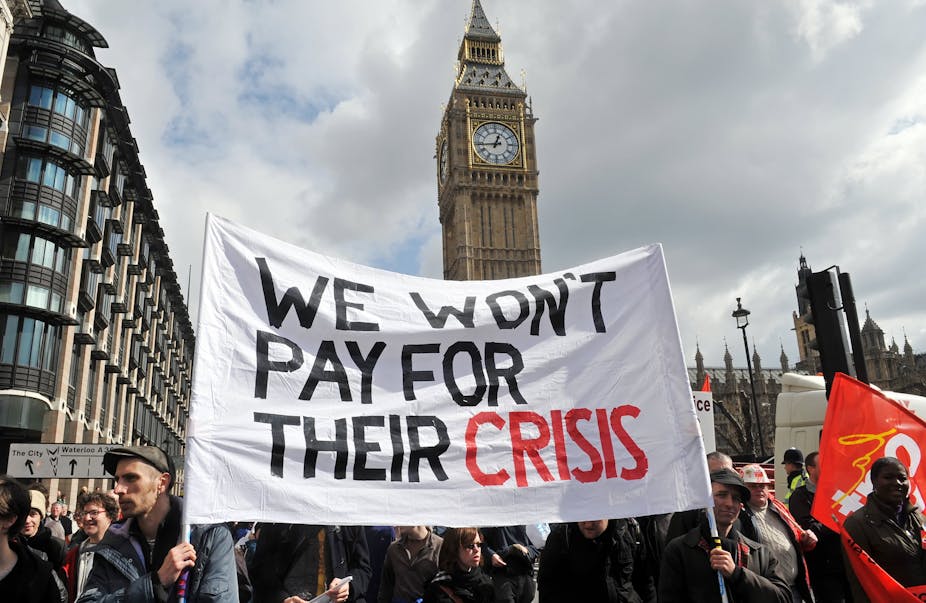Remember globalisation? It’s not a term that’s much in vogue any more. Here at Flinders University, our globalisation program closed down last year.
But if you were around in the 1980s and 1990s, you might remember that it was all the rage. From telecommunications to production processes, from culture to fast-food chains, globalisation was … well, everywhere.
It was seen as the reason that the vast majority of governments, of every size and political complexion, all began implementing economic policies that looked strikingly similar.
“Left wing” programs of state management, income redistribution and full employment went out. “Right wing” ones that emphasised the importance of the private sector, of market forces and individual initiative came in.
The bastions of state control and national autarky – the allegedly communist countries – fell in the process.
A rich country phenomenon
No less intense at the time was the debate over whether globalisation existed at all. Serried ranks of academics and analysts told us that globalisation either wasn’t happening or wouldn’t last.
It was a rich country phenomenon, transnational corporations were still dependent on particular national states – and, in any case, it could all end in tears (as the last phase of globalisation had in 1914).
Globalisation, if there was such a thing, could be halted and turned back by national governments (with the implication, for some, that this would be a Very Good Thing).
But we don’t hear many of those sorts of argument any more either.
Globalisation continues
Mainly because, I would suggest, none of these things happened. Globalisation – in the sense of the construction of a world manufacturing system and a world market – has continued, embracing advanced and developing countries alike.
Large corporations have become less and less dependent on particular states. There has been no example of an economy turning back to economic autarky and commandism.
And while wars – even big wars – continue, a world war, on a scale big enough to break up the world economy, would seem impossible.
Had any of their predictions come to pass, we might have expected the globalisation-deniers to indulge, at the very least, in a quiet “I told you so”. They are not, to my knowledge, lining up to do so.
No imminent demise
There was a time when any decent sort of economic hiccough was enough to produce loud predictions of globalisation’s imminent demise (the Asian economic crisis in 1997 was a case in point). The recent global financial crisis did not.
But if globalisation continues, why have people stopped talking about it? My contention is that globalisation has become so much a part of our lives that we no longer really notice it.
We are completely familiar with products that are made all over the world and which, in their final form, come to us from all over the world.
Add to this the Internet, and the world market is spread out before us in more and more accessible ways. Foreign investment is sought after by almost every government in the world rather than being regarded as an enemy of the national interest.
Adapt and survive
Protectionism is regarded in a negative light – rather than the first and best policy in the state’s tool box. National governments are rarely expected to stand up to the pressures of world markets – they are expected to adapt themselves to them.
The onward, if now untrumpeted, march of globalisation is manifested in Australia in two particular ways.
The first is in the question of refugees and illegal immigration.
One of the last remaining autonomous powers of the national state is border control. Governments have difficulty in regulating in-flows and out-flows of goods, services, finance and information.
World market, world labour
People are another matter – and most national governments guard this remaining prerogative jealously. But a world market in goods and services demands a world market in labour.
An ageing population needs fresh reserves. The globalising forces of illegal migration squeeze through the interstices and around the edges of national fortresses.
The second is in the “two-speed” or “two-tier” economy. Before the latest phase of globalisation, the future of a company was often bound up with that of a national state, on which it depended for issues of defence and infrastructure.
The process of capital accumulation – the advance of companies based in a particular nation – took the national economy (and with it, the state and its citizens) forward as a whole.
There is no reason for this to be the case today. Those parts of an economy that are plugged in to the world market will move forward – the resource sector in Australia, for example.
Those that are not – along with their workers and their societies – may be left behind.

